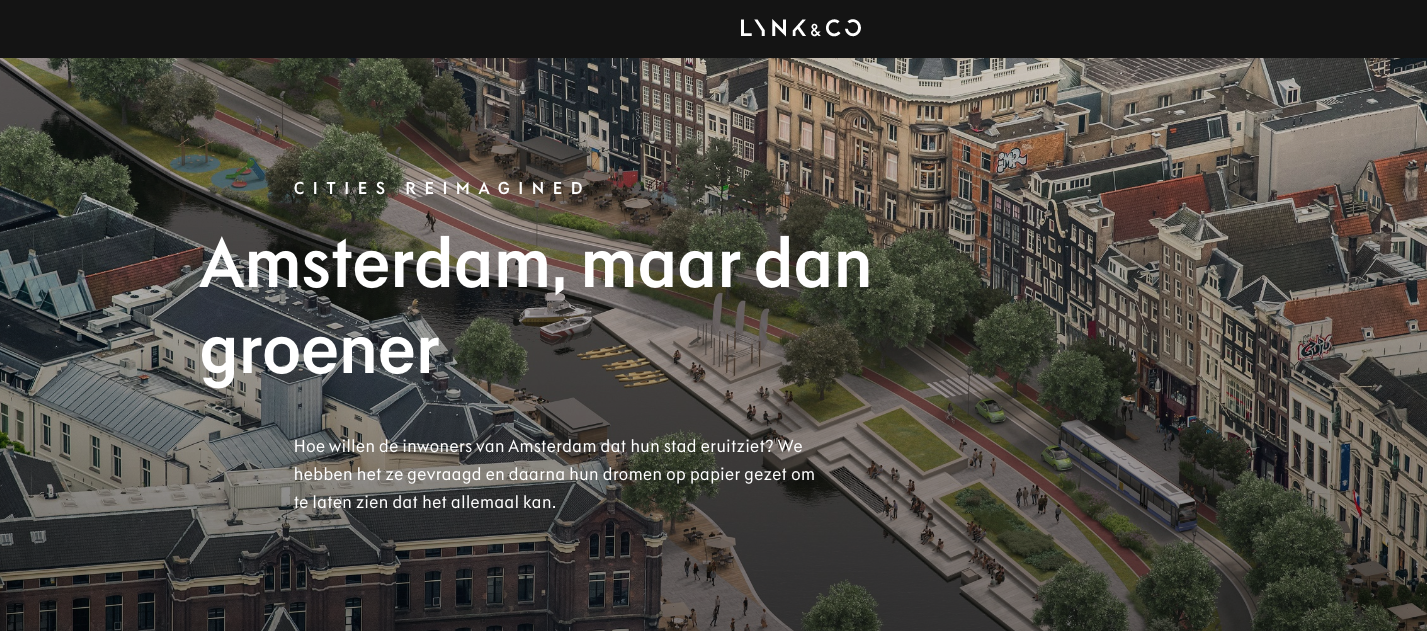Who is your key market? Who is your ideal customer?
What we see is our consumers are really varied. However, I think there's one thing that is the red thread across all our consumers is open-mindedness about mobility. We have a lot of families, we have a lot of businessmen and businesswomen who have our cars, we also have a lot of businesses who are buying our cars or taking our cars into their fleets. We have rental car agencies that are very interested in our business model and that's also great for us because it does mean that we're having more butts in seats and higher utilisation of the cars which is exactly what we want.
If you're an agency guy like me or an employer basically, you have these very long lease periods and when people leave you have a big fleet of 4, 6, 8 cars sitting idle, and this is a great proposition. How do you innovate in terms of marketing?
In my current role as CMO at Lynk & Co I have quite a wide scope including the digital team but also the retail team which is the team that manages the clubs or our stores. Our stores are really a big part of our marketing experience because they really impersonate the brand. Our brand is "wow" but it's also simple and we want it to be hassle-free, so we make our clubs very warm, very open, very welcoming, and inclusive. I like to think of it a little bit as the cost-free Soho House. So that's a big part of our experience. We just this year launched a marketing campaign called "Leave the owner-shit behind". It was a bit edgy and a bit bold which is also very similar to our brand. Our PR team just launched a new campaign called Cities Reimagined where we really pushed designers to think about it. It started with a survey into countries asking: what would you like to see if there were yet less cars in your city? So, you take a city like Madrid, and you say, "if there were less cars, what would you like to see in this market?" And the consumers responded and then we developed a concept out of that, what it looked like today and what it could look like with less cars.
With car sharing, presumably the goal is to have less cars on the roads parked on the streets, taking up the streets. What's the goal, what's the dream?
What we heard from consumers is more green space, more spaces for their kids to play freely, more spaces to like we're doing on my street, grow vegetables, and have a community garden. Less congestion as well, less pollution as well. This is what the images in Cities Reimagined also portray. And better public transportation as well to support that.
The new marketing tools emerging like the Metaverse, Augmented Reality and AI - they bring a whole new level to customer experience which will have a huge experience on retail. Are the days of flagship experience centres or clubs counted?
For us it's still important to have a physical touchpoint to build our brand. I completely disagree with this statement. Even though we're not in the business of selling cars like other OEMs or automotive companies, for most consumers it's still a big-ticket decision. Experiencing the product in person is still their go-to, I think AR has been around in many sectors for a long time, but people still try clothes on in stores, right? They still have amazing food experiences, and they still often want to see how they fit in a car they may drive every day. I think the personal interaction is not yet an outdated concept. The challenge would be I think in the future to ensure that we are offering both offline and online experiences that fit the consumer so they can really choose which they prefer. I think we've also approached our retail stores, and like I said before we call them clubs in a very unique way. We have 10 clubs across Europe, including here in Amsterdam. A Lynk & Co club is not a showroom nor is it an experience centre, it's really a welcoming space that is for our members and for the public. You can of course ask about the car and see the car and sit in it, or you can do a test drive there. But you can also just flex work.


